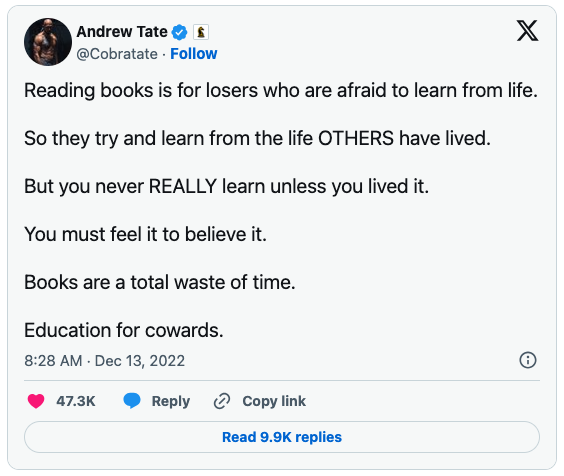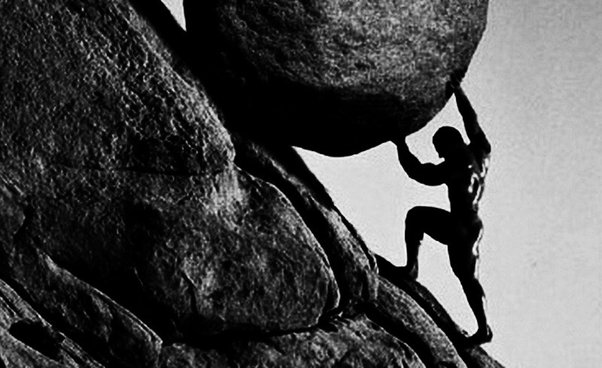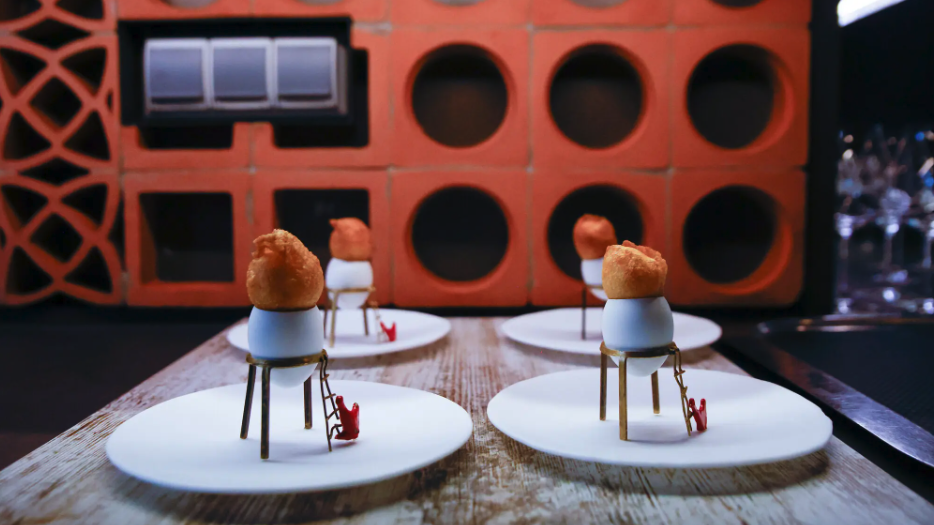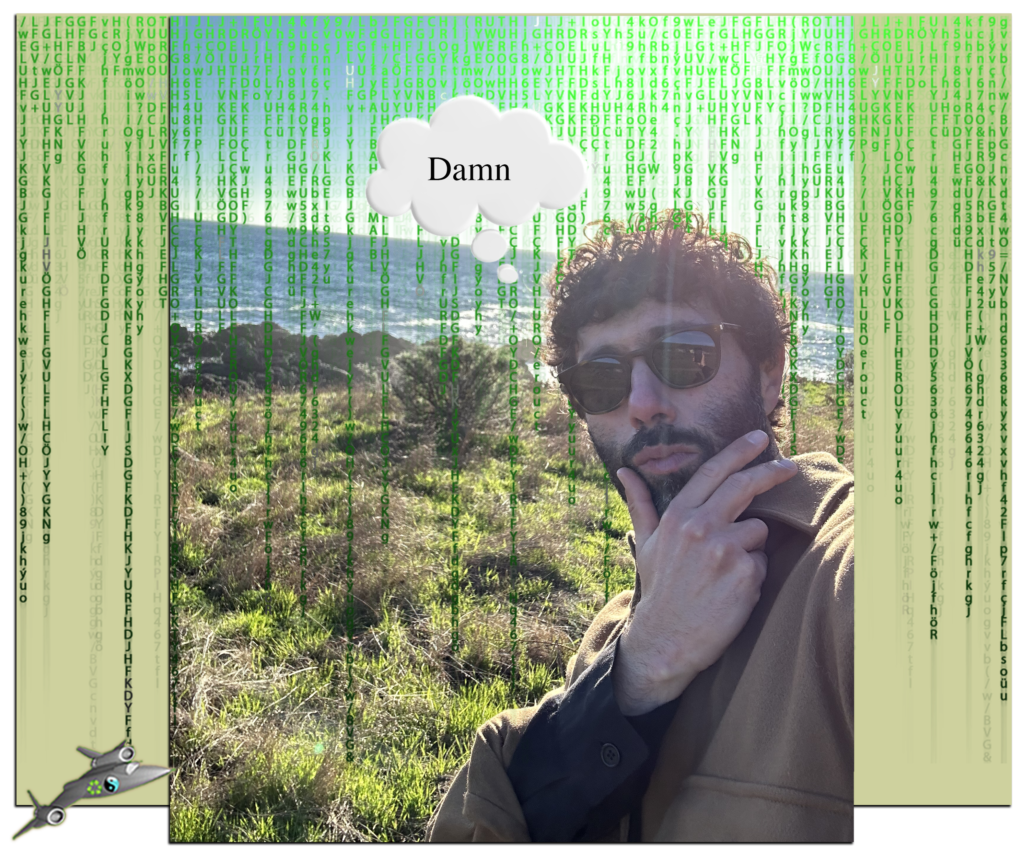Why are so many men too cowardly to read novels?

Yes, the headline question above is an intentionally sarcastic framing in response to this truly idiotic tweet by a garbage human. But apparently, this “men against fiction” phenomenon is a real problem according to recent data, such that Dazed Magazine felt compelled to extrapolate why.
It is a cultural hangover that persists. A “cult of productivity is still imposed more on men than women,” says Dr Alistair Brown, Assistant Professor of Digital Humanities and Modern Literature at Durham University. “[Non-fiction] seems to have more immediate or meaningful returns on the investment of time.” Consequently, men buy more: in 2023, men accounted for 55 per cent of non-fiction book sales, Nielsen BookData tells Dazed.
…
Could reading stories offer an alternative route through the masculinity crisis? By creating “a safe space for allowing oneself to feel, with no strings attached,” Professor Keen suggests that reading fiction is the diametric opposite of the stale stoicism of the manosphere.
Now, I’m sure entire research papers, books, college courses, self-help courses and more have been written by other professionals about the benefits of reading. Several are linked in the article above. But the way in which this New Toxic Caveman Masculinity sets itself against reading (and thereby, women, as in so many other ways) is so laughable as to be self-parody, which is why I couldn’t help screen shot that tweet above. Could this idiotic worldview, maybe, possibly, have something to do with men’s decreasing grades and college graduation rates? Hmm, maybe they’re macho-ing their way right out of the future all on their own!
So…
What makes men so afraid of being seen as bookish? What are they hiding from?
How do those of us men who do read books make the case to the men of the future that books are good, actually?
What is it about nonfiction books vs novels that better attracts those men who do read? What are men missing by choosing that reading diet?



